
International Symposium on Grids and Clouds

Theme: AI and Hybrid Quantum - Shaping Tomorrow’s Scientific Breakthroughs
The rapid evolution of AI is reshaping scientific discovery across a wide range of research fields. At ISGC 2025, the focus will be on the practical deployment of AI technologies, particularly how they have been successfully integrated to accelerate research and address complex challenges. From machine learning models to large language models (LLMs), AI’s transformative impact is undeniable, and the conference will showcase real-world use cases and share valuable lessons learned in deploying these technologies. By showcasing the practical uses, ISGC 2025 aims to provide participants with actionable insights into how AI
can be applied to enhance their own research and drive innovation in their fields.
In parallel, hybrid quantum computing is emerging as a promising game changer, similar to the rise of AI in recent years. As quantum computing continues to complement traditional supercomputers, it holds the potential to solve problems that were previously thought intractable.
ISGC 2025 will explore the current state of hybrid quantum systems, discussing their deployment and the challenges in integrating these cutting-edge technologies. Together, AI and quantum computing represent the future of computational science, offering unprecedented opportunities for innovation. ISGC 2025 will foster an environment for
sharing ideas and solutions, helping participants refine their approaches and collaborate to overcome the challenges of deploying these transformative technologies.
Website: https://indico4.twgrid.org/event/51/
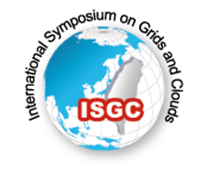
The ISGC is one of the most important annual international events in Asia, uniting scientists
and engineers globally to exchange ideas on Open Data and Open Science.
ISGC 2024 promotes open data/science collaboration, offering an opportunity to learn from
the latest achievements globally. ISGC 2024 aims to create a venue for communities and
national representatives to present solutions to global challenges. We welcome your
participation!
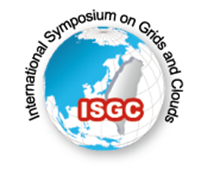
Celebrating its 20th anniversary, the International Symposium on Grids & Clouds (ISGC) 2023 will be held on 19~24 March 2023 at Academia Sinica, Taipei, Taiwan. The HEPiX 2023 Spring Workshop then will take place back-to-back on 27~31 March. The ISGC is one of the most important annual international events in Asia that brings together scientists and engineers worldwide to exchange ideas, to present on challenges, solutions and future development issues in the field of Open Data and Open Science.
The main theme of ISGC 2023 will focus on “accelerating time-to-science through computing”. Over the past two decades, the scientific research had been revolutionized by the infrastructure of distributed computing and the concept of open data. Compute-intensive research has once been a barrier for many researchers. Nowadays, the cloud and distributed computing infrastructure could provide researchers immediate access to an unlimited amount of computing power and allows them to ask questions that may not have been possible. Moreover, the virtual infrastructure allows researchers to share large-scale data. Reducing time to science is something every researcher wish to experience.
Promoting the open data/open science collaboration between Asia Pacific region and the world, the Symposium offers an excellent opportunity to learn from the latest achievement from Europe, America and Asia. The goal of ISGC is to create a face-to-face venue where individual communities and national representatives can present and share their contributions to the solutions of global challenges. We cordially invite and welcome your participation!
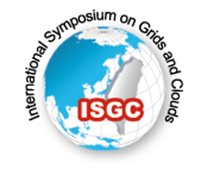
The annual ISGC virtual conference will be held from 21 to 25 March of 2022. While the research data are becoming a real asset nowadays, it is an information and knowledge gained through thorough analysis that makes them so valuable. To process vast amounts of data collected, novel high performance data analytics methods and tools are needed, combining classical simulation oriented approaches, big data processing and advanced AI methods. Such a combination is not straightforward and needs novel insights at all levels of the computing environment – from the network and hardware fabrics through the operating systems and middleware to the platforms and software, not forgetting the security – to support data oriented research. Challenging use cases that apply difficult scientific problems are necessary to properly drive the evolution and also to validate such high performance data analytics environments.
EDITORIAL BOARD
- Kento Aida, National Institute of Informatics, JP
- Jim Basney, Illinois University at Urbana-Champaign, USA
- Daniele Bonacorsi, University of Bologna, IT
- Alexandre M.J.J Bonvin, Utrecht University, NL
- Yuan-Hann Chang, Academia Sinica & National Central University, TW
- Arthur Ya-Ning Chen, Tamkang University, TW
- Gang Chen, IHEP, CAS, CN
- Patrick Fuhrmann, DESY, DE
- David Groep, NIKHEF, NL
- Mark Hedges, King’s College London, UK
- Bor-Shouh Huang, Academia Sinica, TW
- David Kelsey, STFC-RAL, UK
- Dieter Kranzlmuller, LMU Munich, DE
- Yannick Legre, OPERAS, BE
- Simon C. Lin, Academia Sinica Grid Computing Centre, TW
- Ludek Matyska, CESNET, CZ
- Tomoaki Nakamura, KEK, JP
- Jim Shyu, Chinese Culture University, TW
- Junichi Tanaka, University of Tokyo, JP
- Andrea Valassi, CERN, CH
- Von Welch, Indiana University, USA
- Eric Yen, Academia Sinica, TW
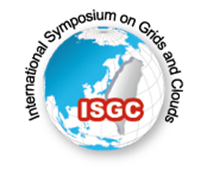
Theme of ISGC 2021 is "Challenges in High Performance Data Analytics: Combining Approaches in HPC, HTC, Big Data and AI".
While the research data are becoming a real asset nowadays, it is an information and knowledge gained through thorough analysis that makes them so valuable. To process vast amounts of data collected, novel high performance data analytics methods and tools are needed, combining classical simulation oriented approaches, big data processing and advanced AI methods. Such a combination is not straightforward and needs novel insights at all levels of the computing environment – from the network and hardware fabrics through the operating systems and middleware to the platforms and software, not forgetting the security – to support data oriented research. Challenging use cases that apply difficult scientific problems are necessary to properly drive the evolution and also to validate such high performance data analytics environments.
Even we have to meet virtually, the goal of ISGC 2021 is still to offer a platform where individual communities and national representatives can present and share their contributions to the global puzzle and contribute thus to the solution of global challenge.
EDITORIAL BOARD
- Kento Aida, National Institute of Informatics, JP
- Daniele Bonacorsi, University of Bologna, IT
- Alexandre M.J.J Bonvin, Utrecht University, NL
- Yuan-Hann Chang, Academia Sinica & National Central University, TW
- Arthur Ya-Ning Chen, Tamkang University, TW
- Gang Chen, IHEP, CAS, CN
- Patrick Fuhrmann, DESY, DE
- David Groep, NIKHEF, NL
- Mark Hedges, King’s College London, UK
- Bor-Shouh Huang, Academia Sinica, TW
- David Kelsey, STFC-RAL, UK
- Dieter Kranzlmuller, LMU Munich, DE
- Yannick Legre, EGI.eu, NL
- Simon C. Lin, Academia Sinica Grid Computing Centre, TW
- Tomoaki Nakamura, KEK, JP
- Jim Shyu, Chinese Culture University, TW
- Junichi Tanaka, University of Tokyo, JP
- Andrea Valassi, CERN, CH
- Alexander Voss, Univ, of St. Andrews, UK
- Eric Yen, Academia Sinica, TW
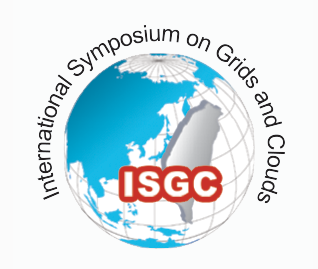
The International Symposium on Grids and Clouds (ISGC) 2019 & Soundscape Conference will be held at Academia Sinica in Taipei, Taiwan from 31 March ~ 5 April 2019, with co-located events and workshops. The main theme of ISGC 2019 is “Efficient and safe processing of FAIR Open Data”.
To achieve the full potential of Open Data and Open Science, scientists should be able to focus on their area of interest and be shielded from the internal complexity of e-infrastructures and the needs to manually deal with the different data formats, input and output constraints of used tools, the authentication and access control and any other technical or technological obstacles that are still part of the current data processing and analysis environments. This is emphasized by the FAIR concept -- data must be Findable, Accessible, Interoperable and Re-usable. New approaches are emerging, hiding the complexity of the underlying computing and data fabrics, exposing just integrated views through scientific portals and gateways, notebooks and other virtual computing environments that promise to enhance the efficiency of work with advanced and complex contemporary e-infrastructures. On the other hand, possible privacy issues related to the Data collected and new, easy-to-deploy analysis methods like those applying deep neural networks, remind us of the need for proper security tools and environments and create new challenges for dealing with private and sensitive data and derived information.
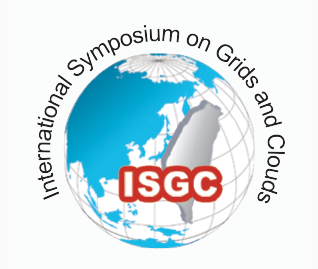
The International Symposium on Grids and Clouds (ISGC) 2018 in conjunction with Frontiers in Computational Drug Discovery (FCDD) will be held at Academia Sinica in Taipei, Taiwan from 16-23 March 2018, with co-located events and workshops. The main theme of ISGC 2018 is “Understanding Open Data: Challenges and Opportunities in the Deep Learning Era”.
The global move towards an Open science and its Open data policy is bringing its first results in opening access to fast growing base of scientific data. This leads to a new set of challenges for the e-infrastructures expected to be the Open Science foundations. They must deal with new demands in traditional areas of their expertise: increase storage and computing capacity, simultaneous access to different pools and warehouses of scientific data, strong access control for sensitive data and many other things at scale levels of magnitude higher than before.
On top of that, increased amount of accessible Open data brings also new challenges, most notably how to understand and interpret the fast growing base of available scientific data. Machine learning and specifically deep learning techniques are currently the most promising general answers to this challenge. However, to deploy these techniques at scale of global e-infrastructures is a highly challenging task, pushing forwards the limits of technology, management and operation.
The goal of ISGC 2018 in conjunction with Frontiers in Computational Drug Discovery (FCDD) is to create a face-to-face venue where individual communities and national representatives can present and share their contributions to the global puzzle and contribute thus to the solution of global challenges.
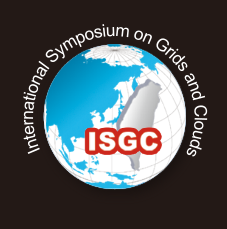
The International Symposium on Grids and Clouds (ISGC) 2017 will be held at Academia Sinica in Taipei, Taiwan from 5-10 March 2017, with co-located events and workshops. The main theme of ISGC 2017 is “Global Challenges: From Open Data to Open Science”.
The unprecedented progress in ICT has transformed the way education is conducted and research is carried out. The emerging global e-Infrastructure, championed by global science communities such as High Energy Physics, Astronomy, and Bio-medicine, must permeate into other sciences. Many areas, such as climate change, disaster mitigation, and human sustainability and well-being, represent global challenges where collaboration over e-Infrastructure will presumably help resolve the common problems of the people who are impacted. Access to global e-Infrastructure helps also the less globally organized, long-tail sciences, with their own collaboration challenges.
Open data are not only a political phenomenon serving government transparency; they also create an opportunity to eliminate access barriers to all scientific data, specifically data from global sciences and regional data that concern natural phenomena and people. In this regard, the purpose of open data is to improve sciences, accelerating specifically those that may benefit people. Nevertheless, to eliminate barriers to open data is itself a daunting task and the barriers to individuals, institutions and big collaborations are manifold.
Open science is a step beyond open data, where the tools and understanding of scientific data must be made available to whoever is interested to participate in such scientific research. The promotion of open science may change the academic tradition practiced over the past few hundred years. This change of dynamics may contribute to the resolution of common challenges of human sustainability where the current pace of scientific progress is not sufficiently fast.
ISGC 2017 created a face-to-face venue where individual communities and national representatives can present and share their contributions to the global puzzle and contribute thus to the solution of global challenges.
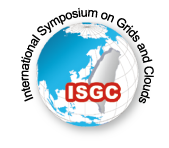
The International Symposium on Grids and Clouds (ISGC) 2016 will be held at Academia Sinica in Taipei, Taiwan from 13-18 March 2016, with co-located events and workshops. The conference is hosted by the Academia Sinica Grid Computing Centre (ASGC).
The theme of ISGC 2016 focuses on“Ubiquitous e-infrastructures and Applications”. Contemporary research is impossible without a strong IT component – researchers rely on the existence of stable and widely available e-infrastructures and their higher level functions and properties. As a result of these expectations, e-Infrastructures are becoming ubiquitous, providing an environment that supports large scale collaborations that deal with global challenges as well as smaller and temporal research communities focusing on particular scientific problems. To support those diversified communities and their needs, the e-Infrastructures themselves are becoming more layered and multifaceted, supporting larger groups of applications.
Following the call for the last year conference, ISGC 2016 continues its aim to bring together users and application developers with those responsible for the development and operation of multi-purpose ubiquitous e-Infrastructures. Topics of discussion include Physics (including HEP) and Engineering Applications, Biomedicine & Life Sciences Applications, Earth & Environmental Sciences & Biodiversity Applications, Humanities, Arts, and Social Sciences (HASS) Applications, Virtual Research Environment (including Middleware, tools, services, workflow, etc.), Data Management, Big Data, Networking & Security, Infrastructure & Operations, Infrastructure Clouds and Virtualisation, Interoperability, Business Models & Sustainability, Highly Distributed Computing Systems, and High Performance & Technical Computing (HPTC), etc.

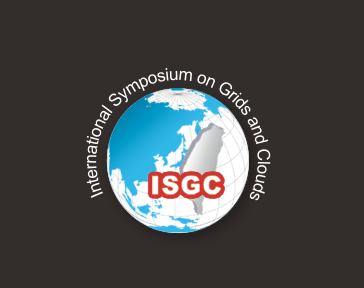



The aim of ISGC is to promote the use of grid and cloud computing in the Asia Pacific region. Over the 9 years that ISGC has been running, the programme has evolved to become more user community focused with subjects reaching out to a larger population. Research communities are making widespread use of distributed computing facilities. Linking together data centers, production grids, desktop systems or public clouds, many researchers are able to do more research and produce results more quickly. They could do much more if the computing infrastructures they use worked together more effectively. Changes in the way we approach distributed computing, and new services from commercial providers, mean that boundaries are starting to blur. This opens the way for hybrid solutions that make it easier for researchers to get their job done. Consequently the theme for ISGC2011 was the opportunities that better integrated computing infrastructures can bring, and the steps needed to achieve the vision of a seamless global research infrastructure.
2011 is a year of firsts for ISGC. First the title - while the acronym remains the same, its meaning has changed to reflect the evolution of computing: The International Symposium on Grids and Clouds. Secondly the programming - ISGC 2011 has always included topical workshops and tutorials. But 2011 is the first year that ISGC has been held in conjunction with the Open Grid Forum2 which held its 31st meeting with a series of working group sessions. The ISGC plenary session included keynote speakers from OGF that highlighted the relevance of standards for the research community. ISGC with its focus on applications and operational aspects complemented well with OGF’s focus on standards development. ISGC brought to OGF real-life use cases and needs to be addressed while OGF exposed the state of current developments and issues to be resolved if commonalities are to be exploited.
Another first is for the Proceedings – for 2011, an open access online publishing scheme will ensure these Proceedings will appear more quickly and more people will have access to the results, providing a long-term online archive of the event.
The symposium attracted more than 212 participants from 29 countries spanning Asia, Europe and the Americas. Coming so soon after the earthquake and tsunami in Japan, the participation of our Japanese colleagues was particularly appreciated. Keynotes by invited speakers highlighted the impact of distributed computing infrastructures in the social sciences and humanities, high energy physics, earth and life sciences. Plenary sessions entitled Grid Activities in Asia Pacific surveyed the state of grid deployment across 11 Asian countries.
Through the parallel sessions, the impact of distributed computing infrastructures in a range of research disciplines was highlighted. Operational procedures, middleware and security aspects were addressed in a dedicated sessions.
The symposium was covered online in real-time by the GridCast team from the GridTalk project. A running blog including summarises of specific sessions as well as video interviews with keynote speakers and personalities and photos.
As with all regions of the world, grid and cloud computing has to be prove it is adding value to researchers if it is be accepted by them and demonstrate its impact on society as a while if it to be supported by national governments, funding agencies and the general public. ISGC has helped foster the emergence of a strong regional interest in the earth and life sciences, notably for natural disaster mitigation and bioinformatics studies.
Prof. Simon C. Lin organised an intense social programme with a gastronomic tour of Taipei culminating with a banquet for all the symposium’s participants at the hotel Palais de Chine.
I would like to thank all the members of the programme committee, the participants and above all our hosts, Prof. Simon C. Lin and his excellent support team at Academia Sinica.
Dr. Bob Jones
Programme Chair
1 http://event.twgrid.org/isgc2011/
2 http://www.gridforum.org/
